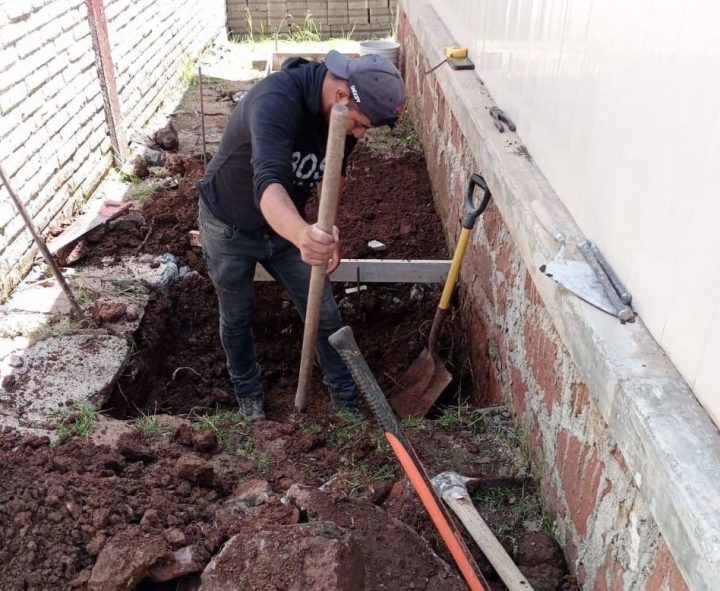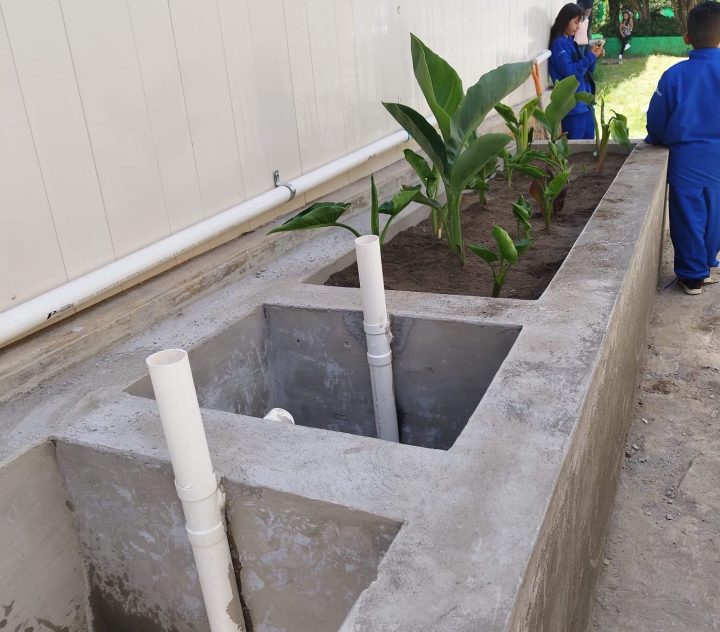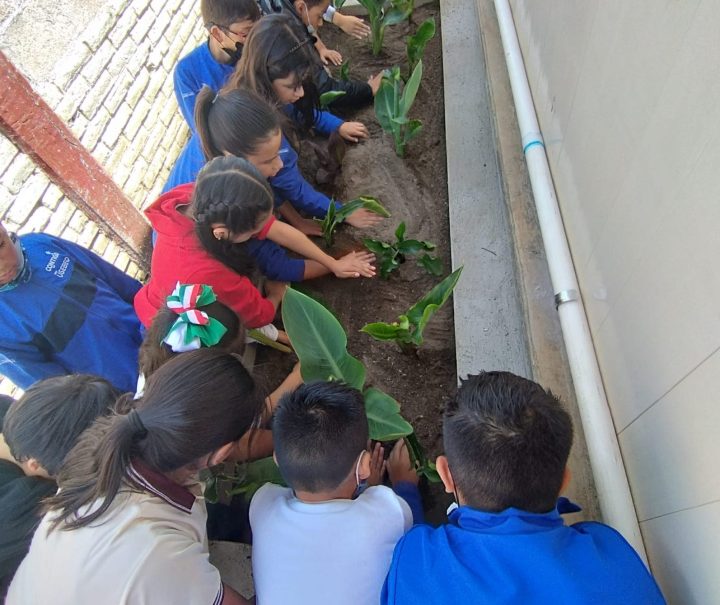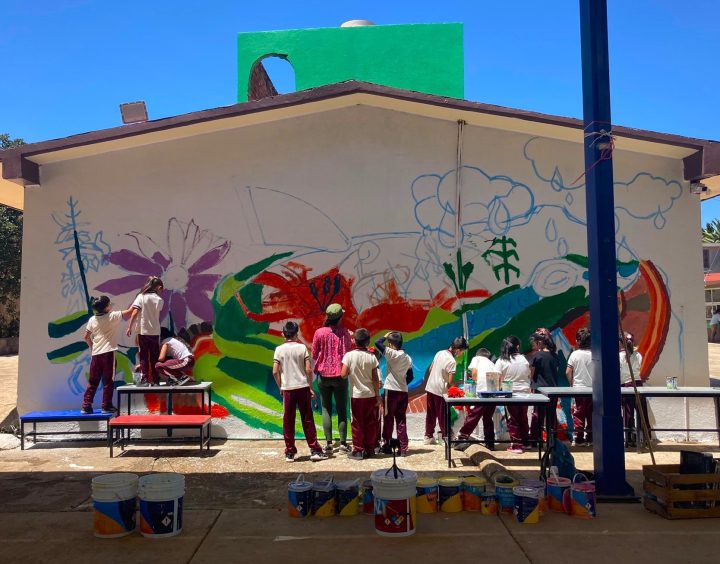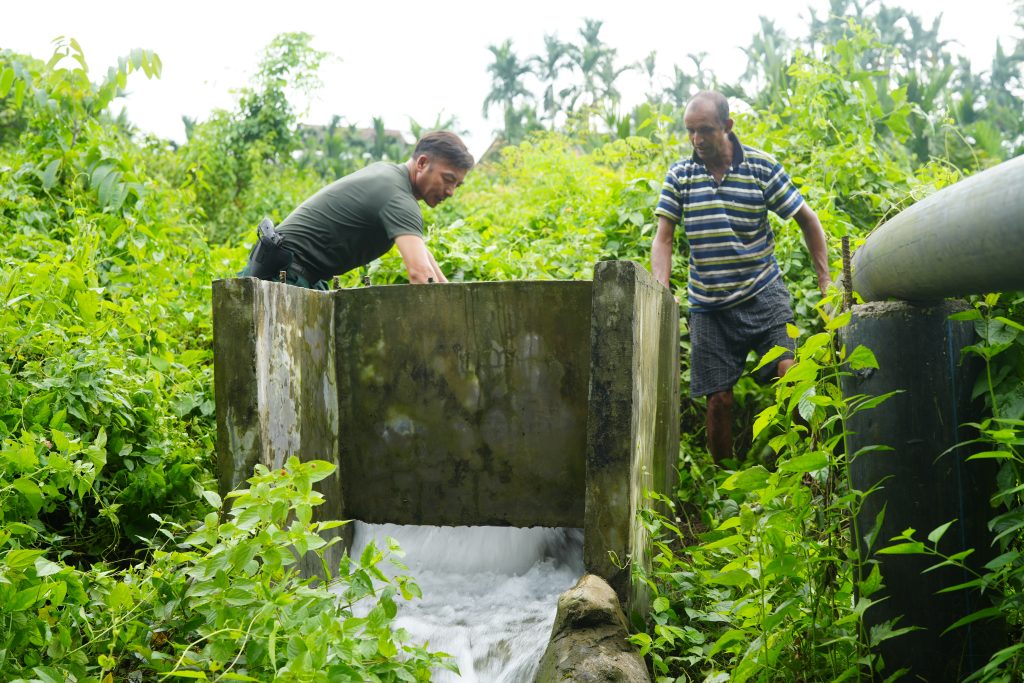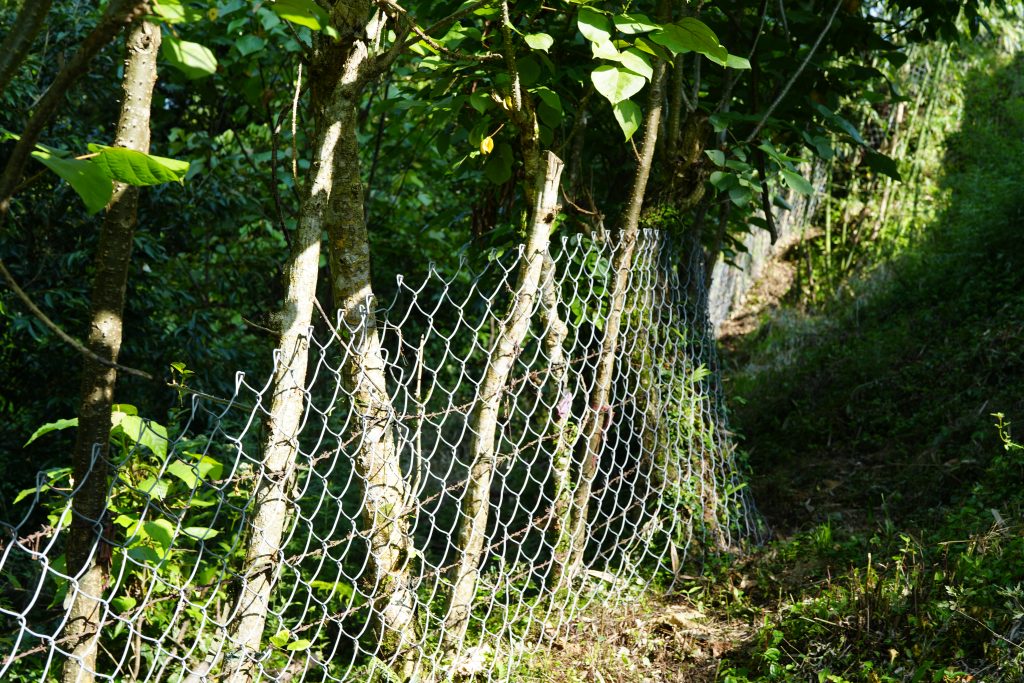Purpose
Improve a school’s sustainability and environmental awareness by installing a biofilter to recycle greywater and by painting a mural with the students.
Climate Impacts
The following impacts were reported by community members in Amealco:
• Loss of water source
• Reduction in crop yields and suitable pastures
• Biodiversity loss due to drought and heat
• Increased dependency on markets due to drought-induced food and water shortages
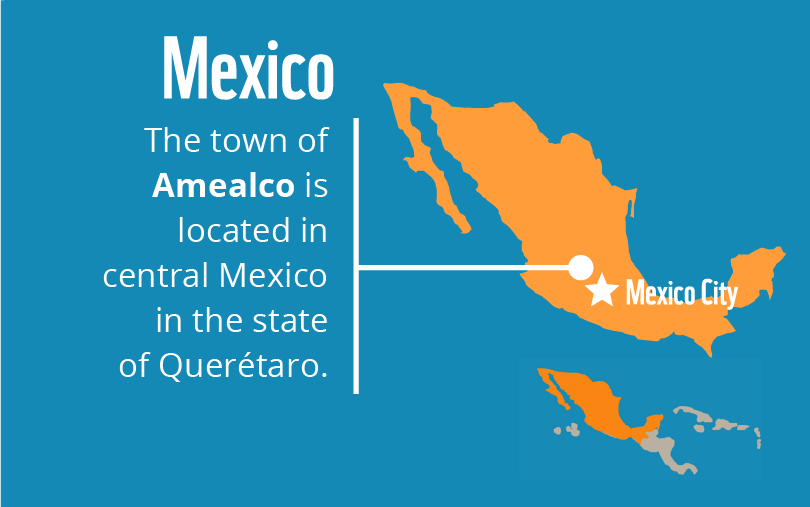
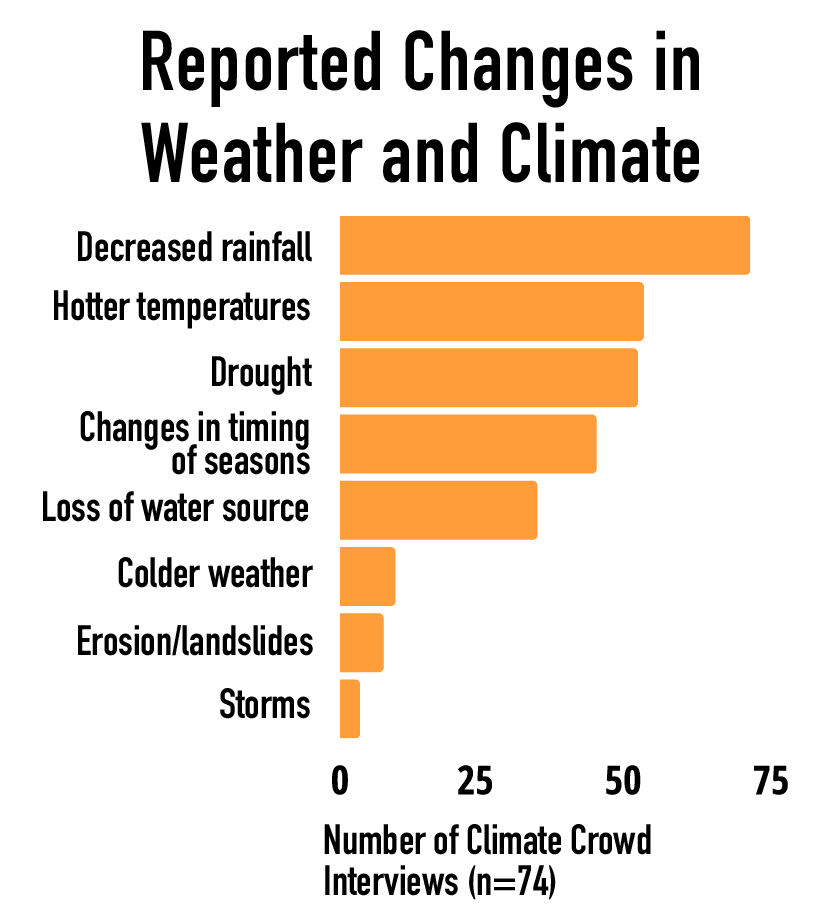
Activities
Site Identification
The kitchen was selected as the ideal site for the biofilter due to its high volume of water used, proximity to the pollinator garden, and spatial capacity compared to other locations.
Creation of a community water committee
A committee was created to monitor the quality of the water after being filtered through the biofilter to ensure its proper function.
Development of evaluation tools and educational resources
Initial and final questionnaires were developed to assess knowledge gained after workshops. A biofilter manual was also created so the project can be replicated.
organization of educational workshops
Two workshops were organized for families to learn about climate change, its impacts, and the role of biofilters. Classes related to biofilter function and benefits were given to the school’s first through sixth graders, along with a demonstration on how to use the biofilter.
Installation of the biofilter
One biofilter was installed to filter the kitchen’s greywater and make it safe to reuse in the school’s pollinator garden. An event was held for families to help with the installation.
mural painting
One mural was painted with the help of the entire school to promote environmental protection and sustainability.
project outcomes
project design
The town of Amealco’s mountainous landscape has been significantly affected by changes in weather and climate. At the forefront of these changes are reduced and inconsistent rainfall, hotter temperatures, and biodiversity loss and change. To help combat the effects of drought and biodiversity loss, a primary school in Amealco built a biofilter to recycle greywater for horticultural purposes. The biofilter was constructed outside the school’s kitchen where the most water is used on a daily basis; to feed its 150 students, the school’s kitchen uses about 300 liters of water per day. From the kitchen drain, the water enters the biofilter’s first tank where food grease floats to the top and food scraps sink to the bottom. In the middle of the tank, there is a tube that transfers the cleaner water to the next tank where the same process is repeated. From there, the water goes into the third and last compartment which contains sand, gravel, porous rocks, and plants—all of which helps filter the water even further. The filtered water will then be pumped from the biofilter, through a hose, and reused to irrigate the school’s pollinator garden, thereby reducing extra water costs/use.
As the filtered water will be used to maintain a pollinator garden, this project also works to support local biodiversity by promoting pollination—an indicator of ecological health. To further increase awareness of the biofilter and its benefits, workshops and classes were held for students and their families. The students also participated in painting a mural in the school, illustrating the importance of a healthy ecosystem for future students and families in Amealco.

